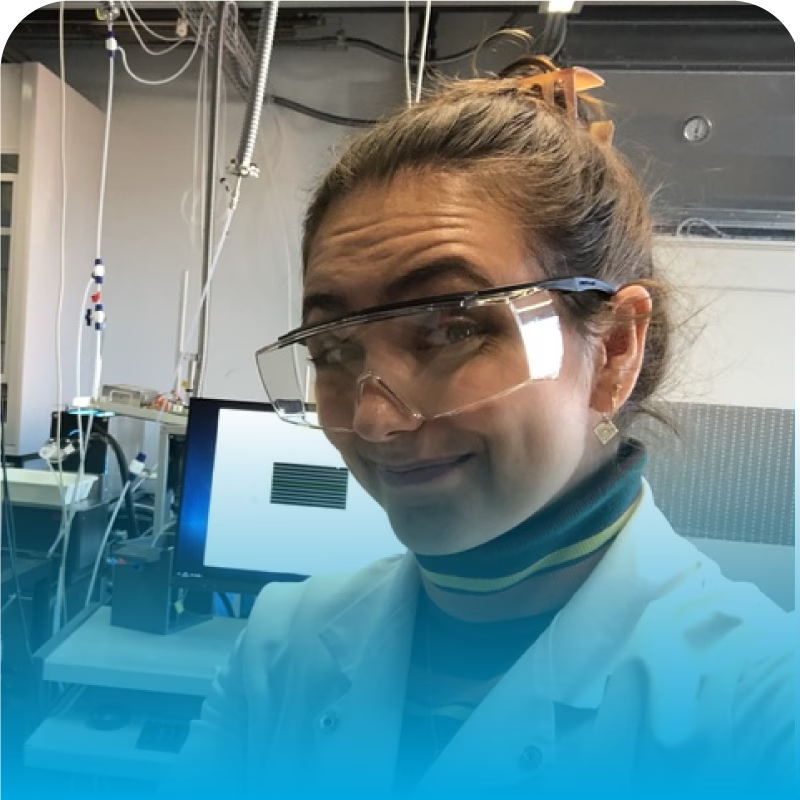Curiosity is the first step toward discovery, and for Zoë Golay, it was a summer at Shad Canada that sparked a journey she hadn’t imagined—one that would lead her to a PhD in environmental chemistry and a mission to protect Canada’s forests. Today, Zoë studies how wildfire smoke interacts with the atmosphere and contributes to ozone depletion, but her path to science began long before she set foot in a laboratory at the University of British Columbia.
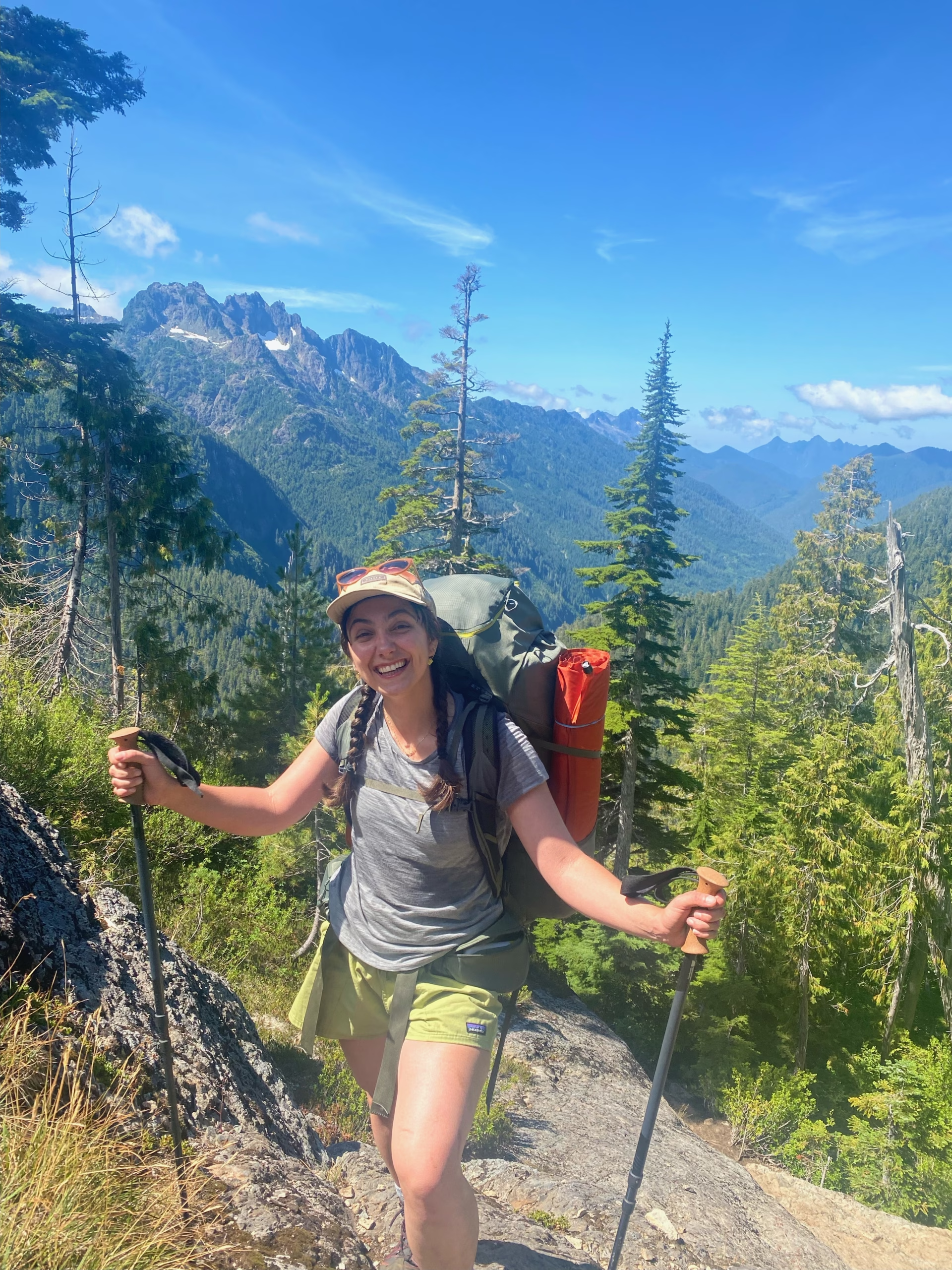
“I really didn’t know I wanted to pursue science before Shad,” Zoë admits. “I was actually thinking of doing an English Literature major. But Shad really pushed me toward STEM by building my confidence and showing me, I could do it.”
Her Shad summer was full of challenges designed to stretch students’ thinking and problem-solving skills. The Design Challenge, in particular, left a lasting impression. Zoë’s team focused on helping Canadians increase their resilience during natural disasters by addressing the environmental impacts of road salt after winter storms.
“While essential for keeping roads safe, excessive salt can damage infrastructure, pollute waterways, and harm ecosystems. We explored ways to reduce reliance on road salt and make winter road management more sustainable, balancing public safety with environmental protection.”
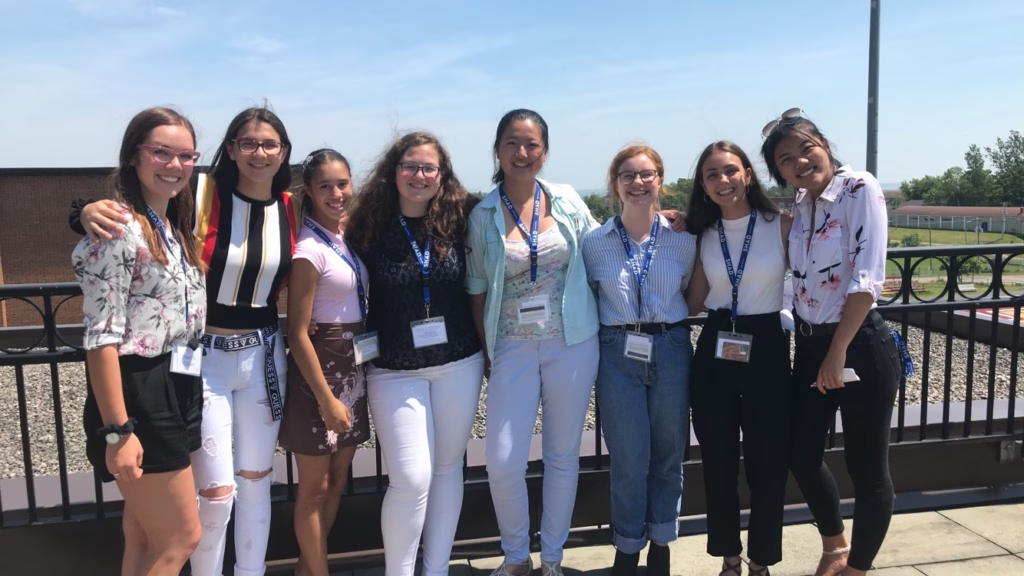
That experience showed her how science and innovation could be used to solve pressing environmental problems—and it was the spark that propelled her to pursue an undergraduate degree in the natural sciences.
“Before we started the Design Challenge, I thought, there’s no way I can do this,” she recalls. “By the end of it, I realized I can do hard things, even if I don’t know the answer right away. It built my confidence in problem-solving and inspired me to pursue STEM.”
It wasn’t a single lecture or workshop that shaped Zoë’s trajectory; it was the immersive community Shad fostered.
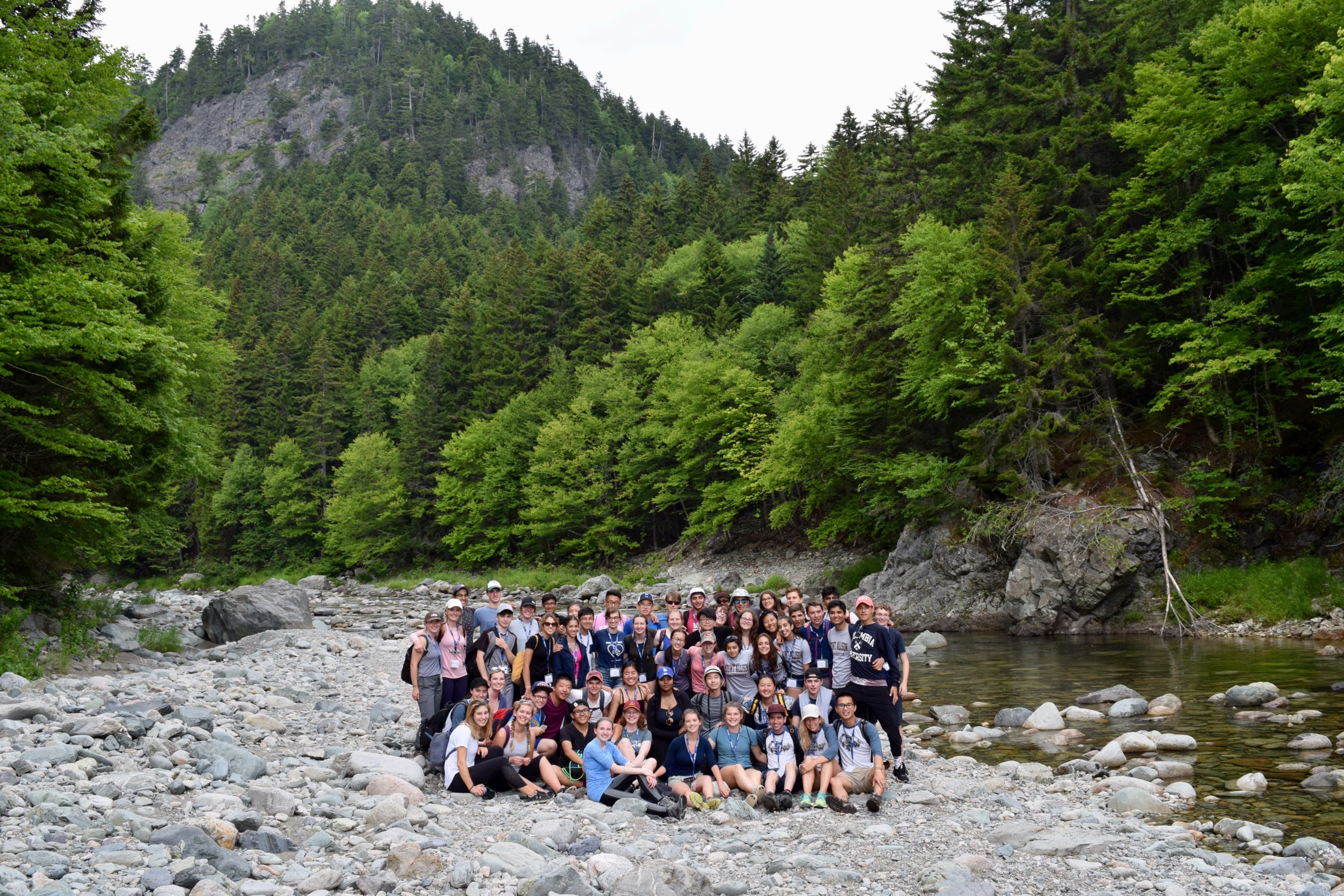
“It was being surrounded by people who are inspired to learn and create, in a STEM environment,” she explains. “That feeling of possibility was incredibly motivating. I realized that there’s so much to learn, and that I could be part of it.”
Shad also introduced Zoë to the idea that science can be a tool for making a real difference in the world. Her team’s work on road salt, for instance, planted a seed that would later grow into a passion for studying environmental impacts in a tangible way.
“It was the first time I’d really thought of myself as someone who could come up with solutions that make an impact,” she says. “It gave me the confidence to explore and take risks, and to see that small solutions can lead to bigger ones.”
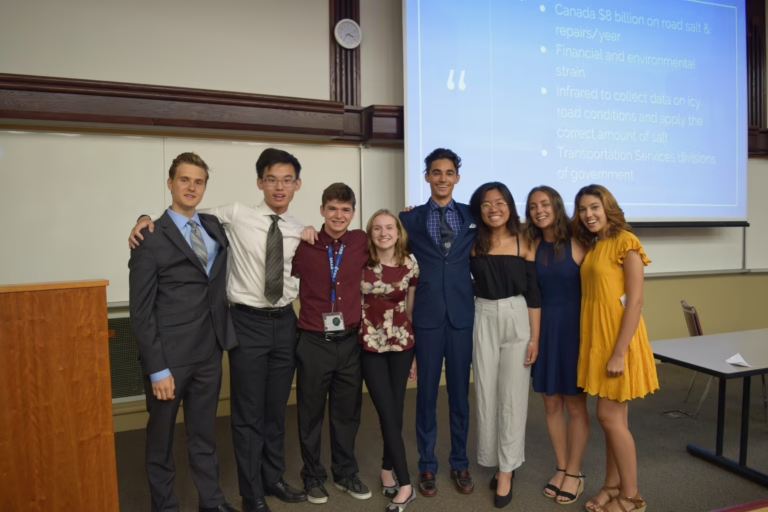
Following high school, Zoë enrolled at the University of Toronto where she initially started in astrophysics before discovering a love for chemistry. She gravitated toward environmental chemistry, drawn by its potential to address real-world problems. Her research began with urban pollutants, like road dust in Toronto—a clear link back to her Shad Design Challenge experience—and evolved into her current PhD research where she focuses on wildfire smoke, a critical issue for Canadian forests.
“Understanding the fundamental science is key,” Zoë explains. “My research looks at how wildfire smoke particles interact with the atmosphere, which can affect ozone levels and climate models. By understanding the problem, we can provide data that helps policymakers make informed decisions. That’s the kind of impact I want to have.”
Zoë’s research has already reached a global audience. She had the opportunity to present her preliminary work on wildfire smoke and atmospheric chemistry at the American Geophysical Union (AGU), one of the most prestigious organizations in Earth and space sciences. Presenting at AGU allowed her to share some of her findings with leading scientists from around the world and receive feedback on cutting-edge research.
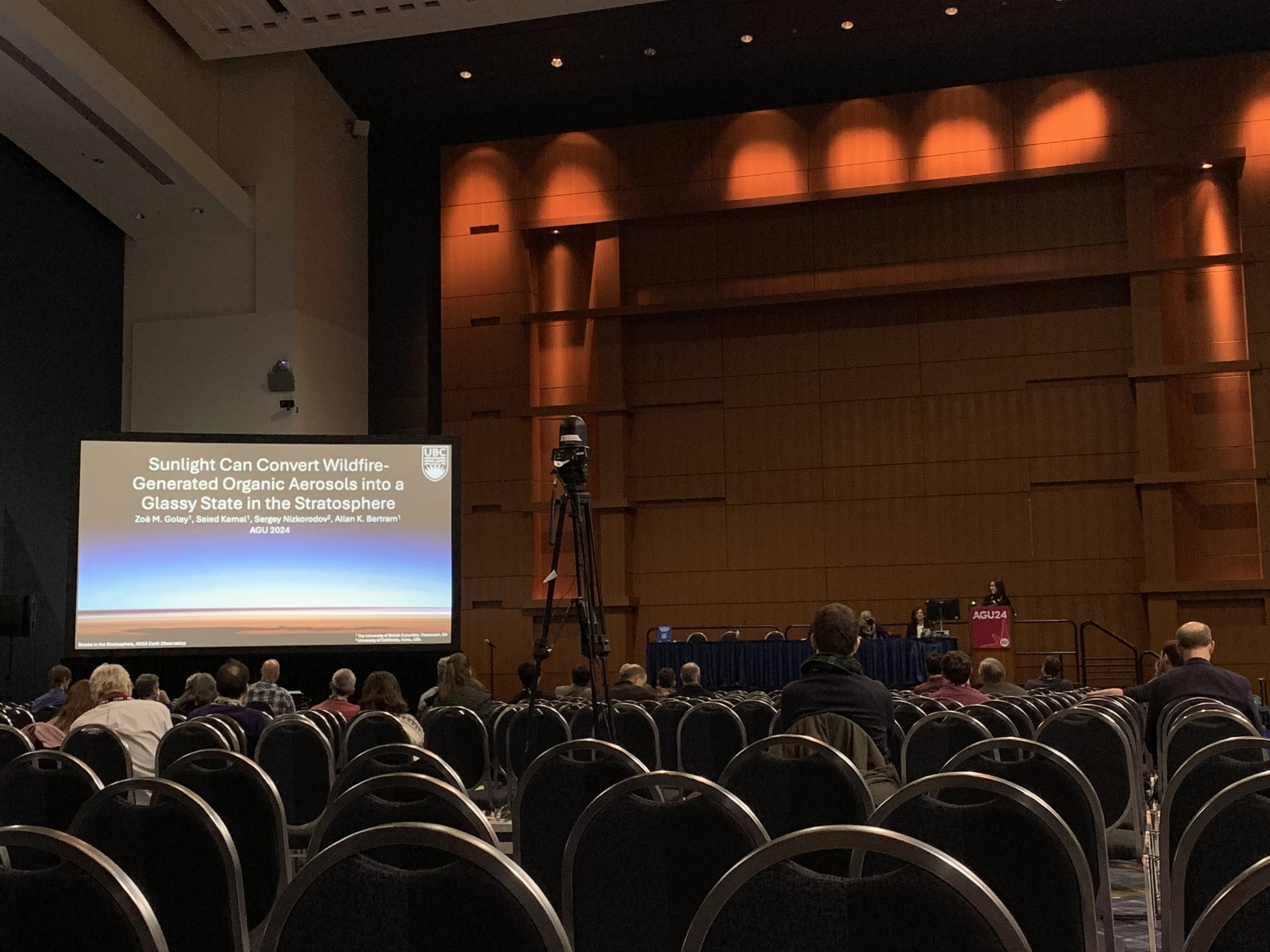
She hopes her research will be used to inform better climate models to help us predict, prepare, and respond to the growing environmental threats. Forest fires are becoming more frequent and intense due to climate change, and their impacts ripple far beyond the flames, affecting air quality, ecosystems, and public health, making scientific research like Zoë’s important for us all.
“The biggest driver of success in science is interest,” she emphasizes. “You can have all the skills in the world, but if you’re not curious and driven, it won’t take you very far. Learning to take risks and step outside my comfort zone showed me that I could contribute to something meaningful.”
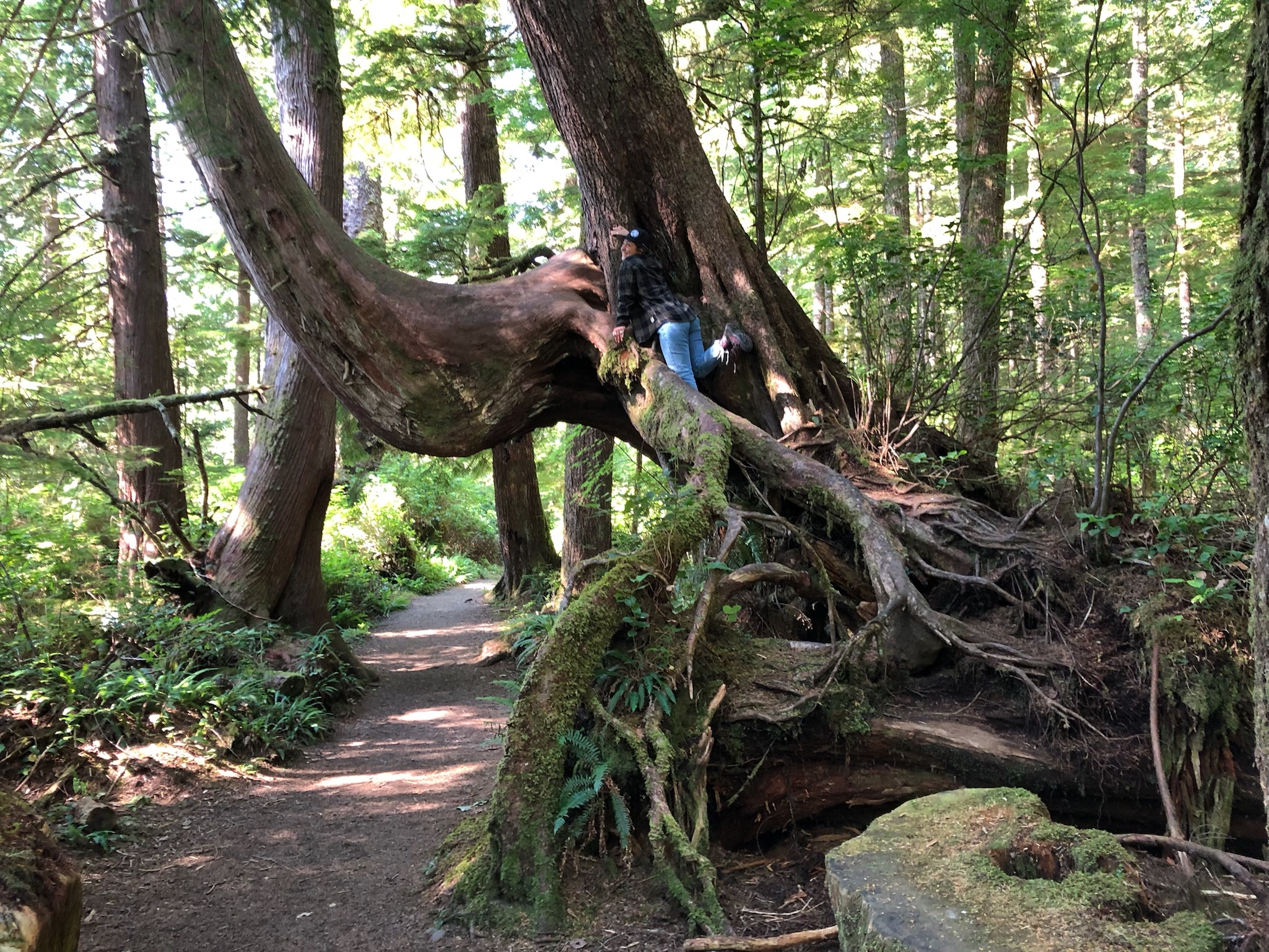
For Zoë, there are so many ways that science matters: it nurtures curiosity, deepens understanding of our natural world, and empowers us to take action. She believes that through programs like Shad, students are encouraged to tackle challenges, experiment boldly, and grow as thinkers, problem-solvers, and changemakers.
“Shad was really a wonderful part of my life,” Zoë reflects. “It gave me the confidence to pursue my passion, to think about sustainability, and to dedicate myself to protecting the environment through science. It inspired me to ask questions, solve problems, and see the incredible impact that curiosity and knowledge can have. It really was life changing for me.”
